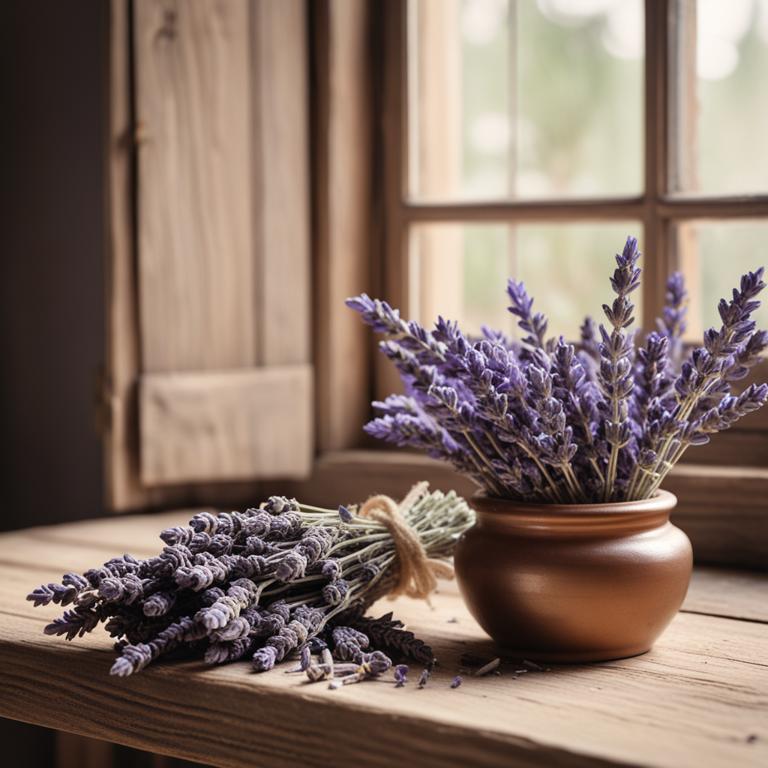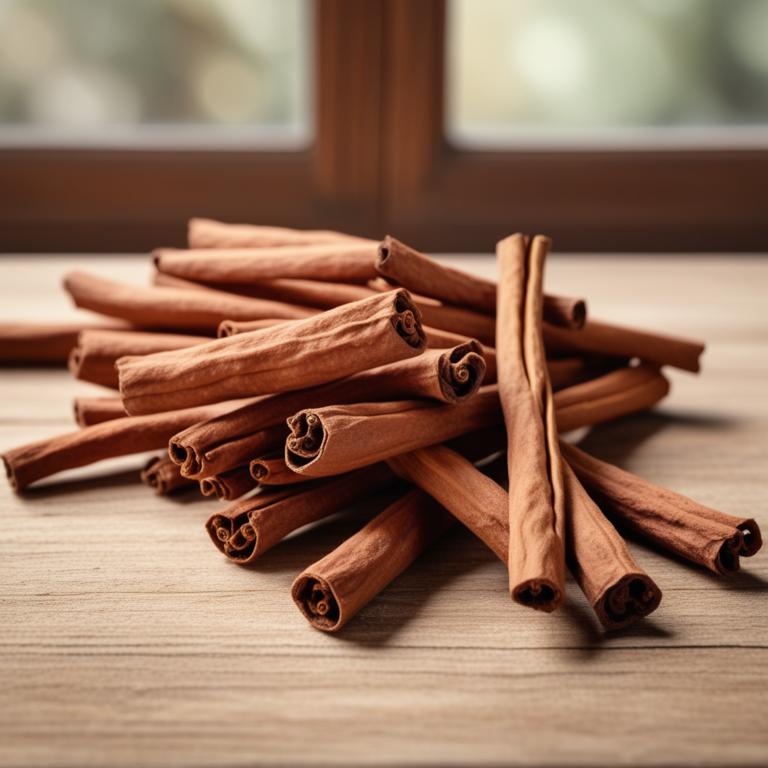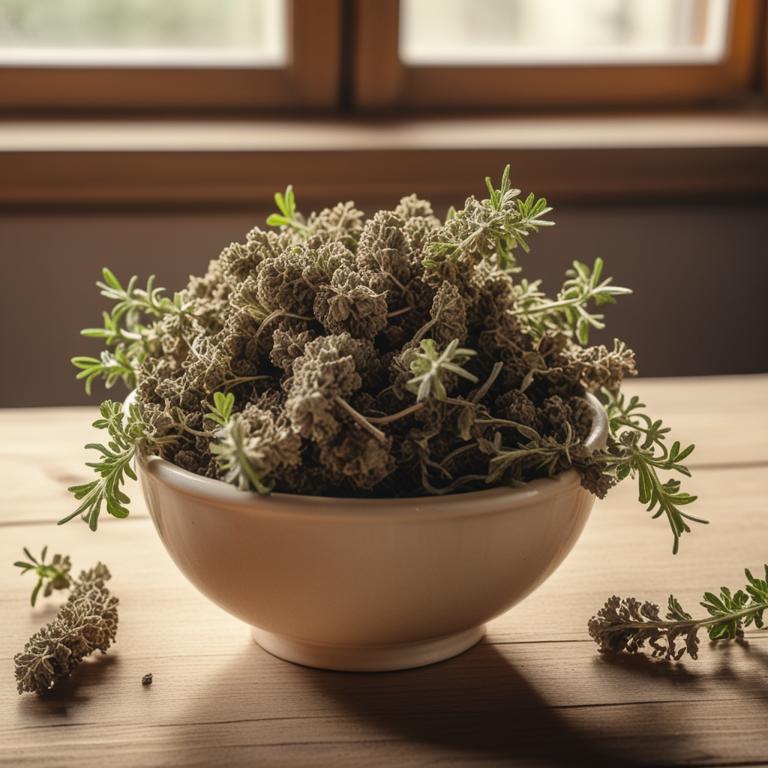Updated: Dec 1, 2024
Understanding Fatigue: Causes, Medicinal Herbs, and Herbal Remedies

Fatigue is a feeling of tiredness and lack of energy that can affect every aspect of your life.
When you're constantly feeling drained, it's hard to focus on work, spend time with loved ones, or even complete simple tasks. This fatigue can be caused by a variety of factors, including a poor diet, lack of sleep, stress, and certain medical conditions. Herbal remedies have been used for centuries to help alleviate fatigue. Herbs like ginseng, ashwagandha, and rhodiola rosea are known for their ability to boost energy and reduce fatigue. These herbs work by stimulating the body's natural energy production and improving mental clarity.
To use these herbs, you can try drinking herbal teas, such as ginseng or ashwagandha tea. You can also take supplements in capsule or tablet form. Some people prefer to use tinctures, which are concentrated herbal extracts that can be added to water or taken under the tongue. Another option is to use herbal infusions, which are like teas but are made with a higher concentration of herbs. When choosing an herbal remedy for fatigue, it's essential to talk to a healthcare professional first.
They can help you determine the best course of treatment and recommend a safe and effective herbal remedy for your specific needs.
Table of Contents
What are the root causes of fatigue?
The main causes of fatigue are often related to underlying health issues.
Anemia, a condition characterized by low red blood cells or hemoglobin, can cause fatigue due to inadequate oxygen delivery to the body's tissues. Diabetes, a chronic condition affecting blood sugar levels, can lead to fatigue as the body struggles to manage high or low blood sugar levels.
Hypothyroidism, or an underactive thyroid gland, can also cause fatigue due to hormonal imbalances that affect metabolism and energy production. Sleep Apnea, a condition where breathing is disrupted during sleep, can lead to fatigue as the body doesn't get quality rest and oxygen supply is compromised.
These health issues can disrupt the body's normal functioning, leading to feelings of exhaustion and fatigue.
What benefits are associated with using herbs for overcoming fatigue?
Using herbs to combat fatigue can be a great way to regain your energy and vitality.
These plants have been used for centuries to help people feel more alert and awake. One of the main benefits is that they can help reduce stress and anxiety, which are common causes of fatigue. By promoting relaxation and calmness, they can help your body and mind feel more balanced and centered.
Additionally, herbs can help boost your immune system, which can be weakened by fatigue. This means you'll be less likely to get sick and can recover faster from illnesses. Herbs can also improve sleep quality, which is essential for feeling rested and refreshed.
By helping you fall asleep faster and sleep more soundly, they can reduce fatigue and leave you feeling more energized and focused.
What are the main medicinal herbs for treating fatigue?
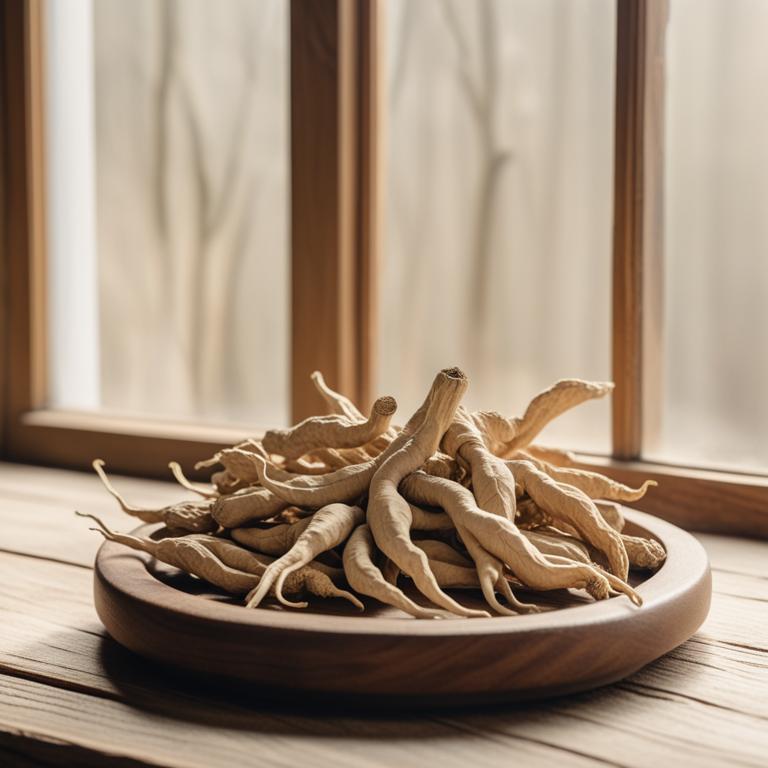
Herbs have been used for centuries to help combat fatigue, and for good reason.
One of the most well-known herbs for energy is Panax ginseng, also known as Asian ginseng. This herb helps to reduce fatigue by improving the body's ability to use oxygen and by increasing the production of energy molecules in the cells. It's like a natural boost to your cells, helping them work more efficiently. Another herb that's great for fatigue is Ginkgo biloba. This plant is known for its ability to improve blood flow to the brain, which can help to reduce feelings of tiredness and mental fogginess. When your brain is getting the oxygen it needs, you're more likely to feel alert and focused. Rhodiola rosea is another herb that's been shown to be effective in reducing fatigue.
This plant helps to reduce stress and anxiety, which are two big contributors to fatigue. By calming your mind and body, Rhodiola rosea can help you feel more energized and focused. Withania somnifera, also known as ashwagandha, is an herb that's been used in Ayurvedic medicine for centuries to help reduce fatigue and stress. This plant helps to regulate your body's response to stress, which can help to reduce feelings of exhaustion and tiredness. Finally, Schisandra chinensis is an herb that's been used in traditional Chinese medicine to help improve energy and reduce fatigue. This plant is known for its antioxidant properties, which can help to protect your cells from damage and support overall health. These herbs work together to help reduce fatigue by improving energy production, reducing stress and anxiety, and supporting overall health.
By incorporating these herbs into your diet, you may find that you have more energy and feel more alert and focused.
What herbal preparations do people use to alleviate fatigue?

If you're feeling tired and exhausted, herbal preparations can be a great way to get some relief.
One good option is a decoction, which is a liquid made by steeping harder herbs like roots or bark in hot water. These types of herbs, like ginseng and ashwagandha, are known to help boost energy levels and reduce fatigue. Another option is a tincture, which is a concentrated liquid extract of herbs. Tinctures are made by soaking herbs in a solvent like alcohol or glycerin, which helps to extract their active ingredients. Tinctures like ginkgo biloba and rhodiola rosea can help improve mental clarity and reduce fatigue.
Herbal teas, like peppermint and chamomile, are also a good choice for fatigue. When you drink a tea, the hot water helps to release the active ingredients from the herbs, which can then be absorbed by your body. Herbal teas can help calm your mind and body, making it easier to relax and get some rest. An infusion is similar to a tea, but it's made with delicate herbs like flowers or leaves. Infusions like lavender and lemon balm can help promote relaxation and reduce stress, which can contribute to fatigue. Finally, some herbal preparations come in capsule form, like capsules filled with dried herbs like St. John's Wort or valerian root.
These capsules are easy to take and can be a convenient way to get the benefits of herbs without having to make a tea or infusion.
Additional Resources:
Which herbs should you avoid if you have persistent fatigue?
If you're feeling fatigued, it's best to steer clear of certain herbs that might make things worse.
Lobelia inflata, for example, can actually increase fatigue and anxiety. This is because it affects the nervous system, making you feel even more drained and jittery. Similarly, Valeriana officinalis, often used to calm the mind, can be too sedating for people who are already tired. It can make you feel drowsy and sluggish, which might not be what you need when you're feeling fatigued.
Ephedra sinica is another herb to avoid, as it can cause energy crashes and fatigue in some people. This is because it can disrupt your body's natural energy balance. Passiflora incarnata can also have a sedating effect, which might be too much for someone who's already feeling tired. And Catha edulis, also known as khat, can lead to physical and mental exhaustion, as well as increased heart rate and blood pressure.
All these herbs can exacerbate fatigue, so it's best to explore other options that can help you feel more energized and focused.
FAQ
Are there any specific herbs that can prevent fatigue?
Ginseng and ashwagandha are two herbs that may help prevent fatigue.
Ginseng is believed to increase energy levels and reduce stress, while ashwagandha is thought to balance the body's stress response.
They work by supporting the body's natural energy production and reducing fatigue-causing chemicals in the brain.
Is it safe to use herbal remedies for fatigue during pregnancy?
When using herbal remedies for fatigue during pregnancy, it's best to be cautious.
Some herbs might not be safe for you or your baby. For example, ginseng and guarana can raise your blood pressure and affect your baby's heart rate.
It's also unclear how certain herbs pass from you to your baby.
Are there any herbs that can reduce the frequency of fatigue?
Some herbs may help reduce fatigue.
For example, ginseng is believed to boost energy levels and improve mental clarity. Ashwagandha is another herb that's thought to help the body adapt to stress, which can contribute to fatigue.
These herbs work in different ways to support overall well-being and energy.
Can i combine different herbal remedies for fatigue?
You can combine different herbal remedies for fatigue, but use caution.
Some herbs, like ginseng and ashwagandha, can interact with each other or with medications. Start with small amounts and monitor your body's response. Consider the specific needs of your fatigue, such as stress or energy levels.
Adjust your combinations accordingly to avoid unwanted side effects.
Related Articles

Herbal Solutions for Eye Strain: Causes, Prevention, and Cure
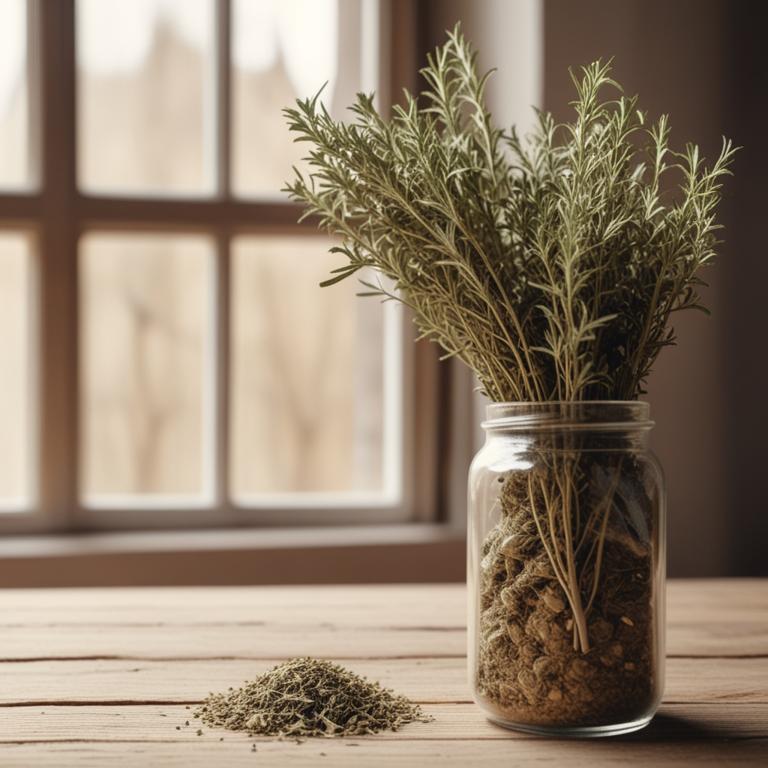
Hiccups: Exploring the Reasons and Herbal Solutions
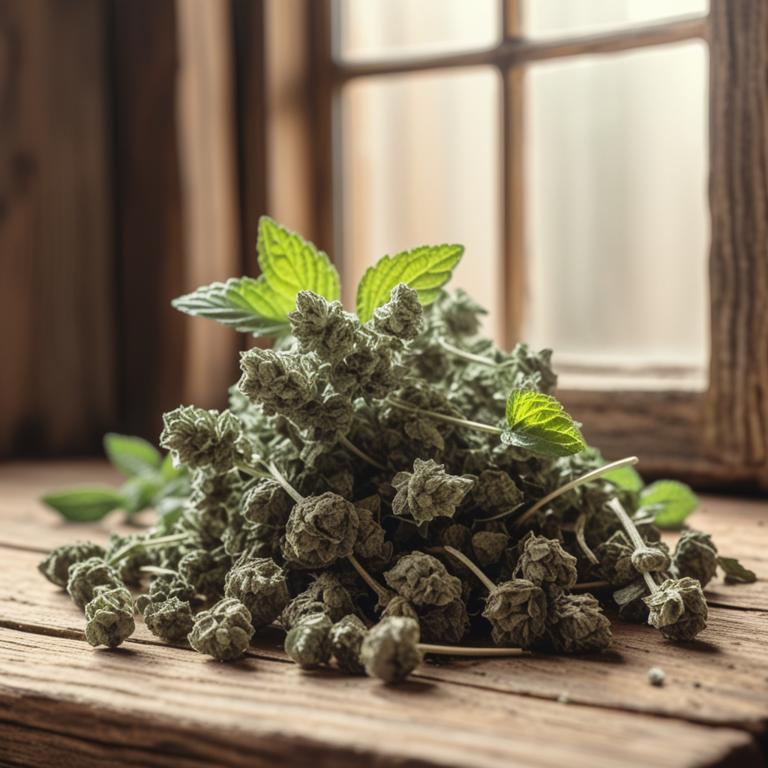
Understanding Taste Changes: Causes, Medicinal Herbs, and Herbal Preparations
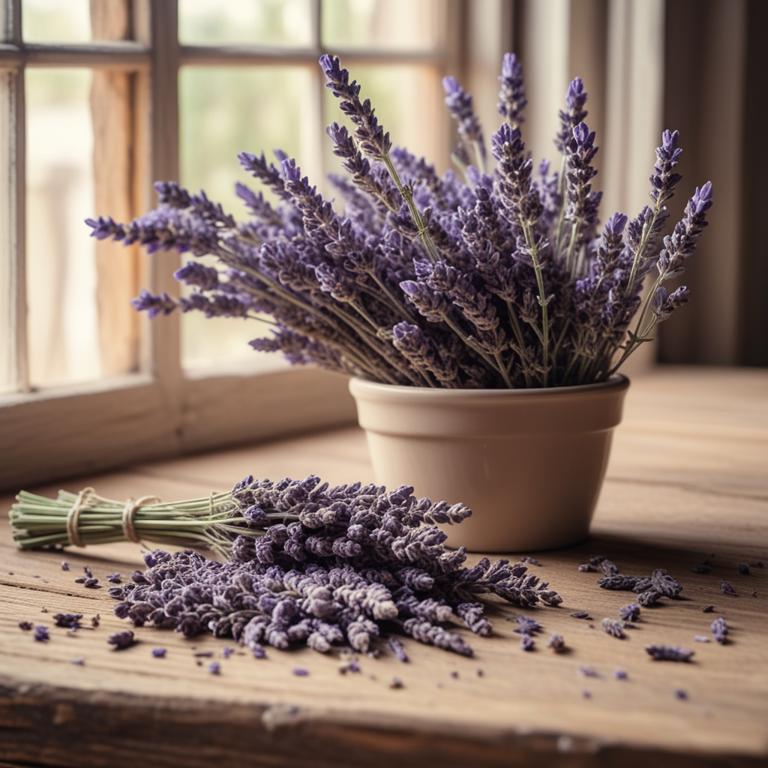
Natural Remedies for Sleep Deprivation: Causes, Medicinal Herbs, and Herbal Preparations
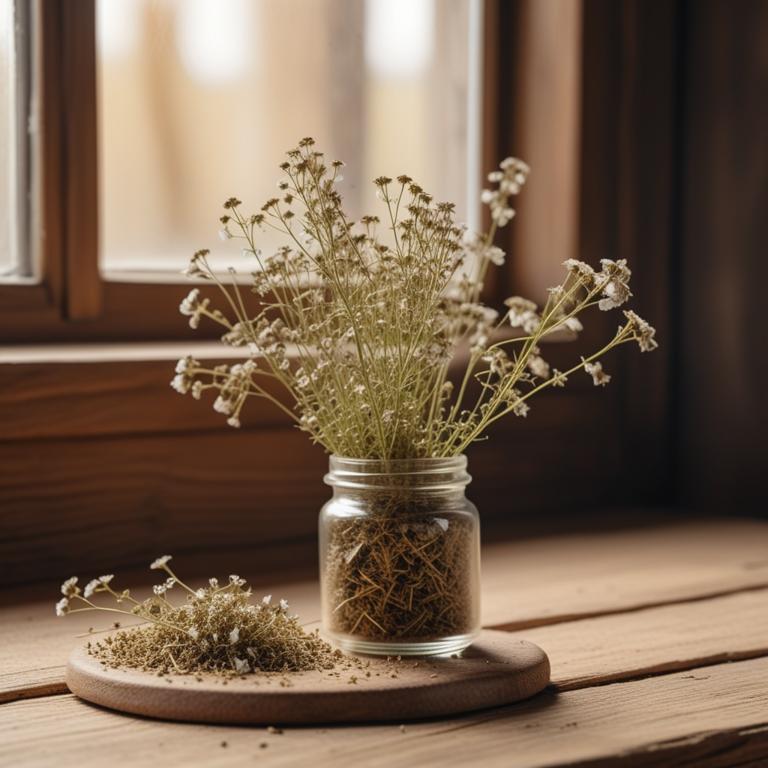
Sore Eyes Treatment with Medicinal Herbs and Herbal Preparations
